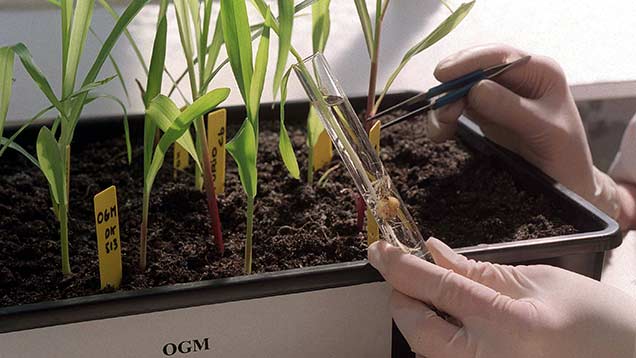Improve your crop knowledge with a Basis course
 @ Sipa Press/Rex-Shutterstock
@ Sipa Press/Rex-Shutterstock Growers looking to improve their crop management know-how and technical skills could benefit from studying for a Basis qualification.
Farmers Weekly Arable reporter Adam Clarke, who has just successfully completed a crop management course, explains what is involved in gaining a Basis qualification.
This course is designed to help those in the arable sector to build their technical crop knowledge and skills whilst working towards a recognised qualification.
See also: Academy for independent agronomists launched
While agronomists are familiar with the qualification, an increasing number of farmers and others in the industry are also benefitting from the course.
Adam says that the key reason for enrolling on the course at Harper Adams University was to expand his knowledge of crop protection.
This would be a particular advantage for the technical reporting required at Farmers Weekly, as part of his role on the arable team.
“I enjoyed every aspect of the course and found the whole process very rewarding, although juggling the day job and study was tough at times.
“I’m very grateful to all the tutors and agronomists that helped me out along the way and pleased all the hard work paid off,” he adds.
Field trial
Studying for the qualification meant spending many hours developing crop-walking skills, going back to the classroom for intensive courses plus a practical in-field project.
Adam carried out a field trial comparing pre-emergence herbicide options in forage maize for a grower in Buckinghamshire and found it one of the most enjoyable aspects of the course.
It involved a side-by-side comparison of three treatments, with assessments of weed control and effect on crop vigour carried out through the first eight weeks after crop establishment.
Weed control is a vital part of maize husbandry, with the crop particularly sensitive to competition in the early stages of development.
“The study showed the cheap and cheerful option provided the most benefit in that particular field, which had a high weed burden.
“A post-emergence application was required after all the pre-emergence’s, so a more cost effective product to supress weeds and reduce crop competition until that point proved the best choice,” explains Adam.


